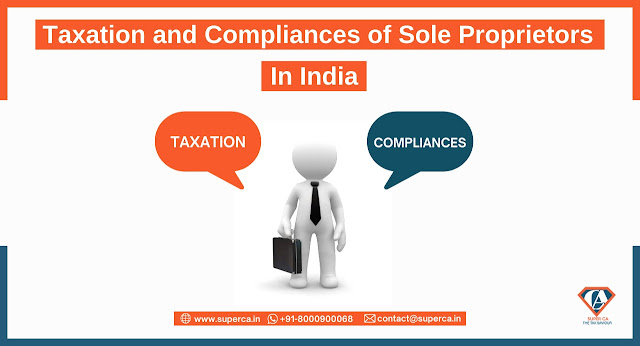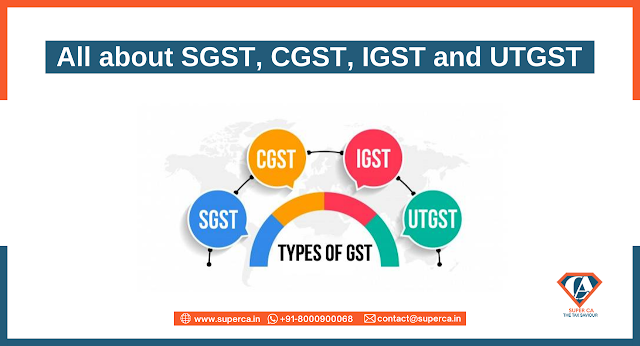Taxation and Compliances of Sole Proprietors in India
Sole proprietorships are “One Man Business Entities”. All the investments for the Sole Proprietorship business are done by the single proprietor who bears all the losses, enjoys all the profits and have the overall control of the business as well as its management. Online Sole proprietorship registration is the most simple one with minimal compliance procedures. Thus any person who wants to start a business from home or on a premise with a minimum amount can opt for online Sole proprietorship registration. It can be started within the time span of 10–15 days.
In this article, we’ll talk about the compliances which are required to be maintained in sole proprietorship businesses. This type of business is the most popular type of business to begin in the unsystematic sector, specifically among micro and small businessmen, traders or merchants due to its simple structure and slab-wise tax benefit. The majority of the unorganized sectors prefer online Sole Proprietorship registration. Now, let’s discuss the compliances required to be maintained after online sole proprietorship registration in India.
Compliance required for sole proprietorship businesses
Like LLPs and other companies registered in India, proprietorship will have to maintain their compliance which includes filing of annual tax returns with the Income Tax Department. Other tax filings like service tax filing or VAT/CST filing may be necessary from time to time, based on the business activity performed. However, annual reports or accounts need not be filed with MCA, which is required for Limited Liability Partnerships and Companies. The compliance requirement for a business would vary based on the type of firm, industry, state of incorporation, number of employees and sales turnover.Income Tax return filing — If an individual income crosses the basic limit of the exempted income tax limit then it is compulsory for him to file the Income-tax return every year unless there is an exemption.
Since the proprietor and the proprietorship firms are considered as one single person, its income is added to that of the proprietor and the individual’s tax return is filed according to the applicable slab rates
GST return filing — Under the GST regime proposed to be rolled out in 2017, proprietorships having GST registration would be required to file monthly, quarterly and annual GST returns. As per the GST rules, it is mandatory for any business/supplier that has a turnover of above Rs.40 lakhs (Rs 10 lakhs for special category states present in hill states and North-Eastern states) to get their GST registration done
ESI Return- If the proprietorship has ESI registration, then ESI return must be filed. Registration of ESI is not required if the proprietorship employs less than 10 people.
Service Tax/VAT — In case a proprietorship firm has service tax or VAT registration, it must file the respective returns. Service tax returns are due half-yearly while VAT return due date changes from state to state.
TDS Filing — In the first year of business, you need not deduct TDS in most cases. However, Quarterly TDS returns must be filed by proprietorships that have TAN and are required to deduct tax at source as per TDS rules.





Comments
Post a Comment